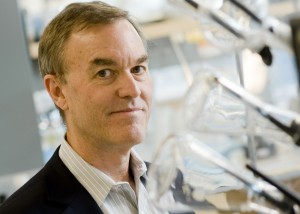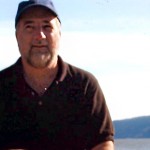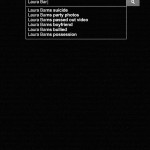
Despite the eye rolling that prerequisite courses and library overnights induce, the true formula for success remains two parts curiosity, three parts passion and all parts hard work. The Daily Free Press was lucky enough to verify this method with one of its loyal proponents, Dr. Tom Tullius.
FreeP: What’s your official position at Boston University?
Tullius: I’m a professor of chemistry, and I’m also the director of the Bioinformatics Program.
FreeP: And what classes do you currently teach?
Tullius: Right now, I’m teaching a graduate course called DNA Nanotechnology, and in the springtime, I teach Chem 102 [General Chemistry 2].
FreeP: I guess a general question worth asking is, “Why science?” Did you always know that you wanted to pursue a profession in it?
Tullius: Well, back in high school I took a really great chemistry class, and the teacher was a wonderful teacher. I had always liked science, but chemistry really seemed like something that I wanted to end up doing…
So in college, I went to UCLA [University of California, Los Angeles] as an undergraduate…I got my degree in chemistry at Stanford [University], my Ph.D., and then I was postdoctoral at Columbia University for three years. I then had a faculty position at Johns Hopkins [University] and moved to BU around 17 years ago.
I’ve been doing chemistry for a really long time.
FreeP: Why does chemistry excite you?
Tullius: It’s a really fundamental science for everything that’s around us in the world…But the other thing about chemistry, which is different from any other science, is that you can make and do things that have never existed in the world. Chemical synthesis is really a unique human endeavor.
FreeP: How did you find yourself at BU?
Tullius: I moved here in 1997…I was actually hired to move here to become the chairman of the chemistry department…So I was the department chairman for eight years, and a couple of years later, I became the director of the Bioinformatics Program.
FreeP: What sort of research does your lab, the Tullius Group, do?
Tullius: We’re interested in DNA. So we’ve been working for quite a while on developing new kinds of experiments where you can get structural information on DNA molecules using chemistry…We developed the chemistry of something called the “hydroxyl radical.” It’s a very reactive free radical, and it reacts with DNA and makes strand breaks in DNA.
It turns out that that pattern of strand breaks gives you an image of the shape of the DNA molecule…It’s quite exciting. A lot of people around the world have adopted the methods that we’ve developed in my lab, which is quite gratifying and fun to see.
FreeP: Since you’ve taught general chemistry many times, why do you think the class is commonly viewed as a “weed-out” class?
Tullius: It’s not a “weed-out” class. We have no interest in “weeding anybody out.” [Laughs] It certainly is a demanding course, and we think it’s probably the hardest course that our students take during their freshman year in terms of time and effort. But I think the effort is really repaid.
Freep: Do you remember what your least favorite class was in college?
Tullius: I don’t know. That’s hard. I kind of liked them all. [Laughs] I really had a great time, and I think I learn something interesting from everything.
FreeP: Given your educational background, do you have any good tips for first year students?
Tullius: One thing they shouldn’t do is just read the textbook and think that that’s enough to understand what’s going on. You really have to be an active learner. When you’re reading a textbook, you need to have a pencil and paper available…You have to question yourself and admit it when you don’t understand something and try to figure out the answer.














